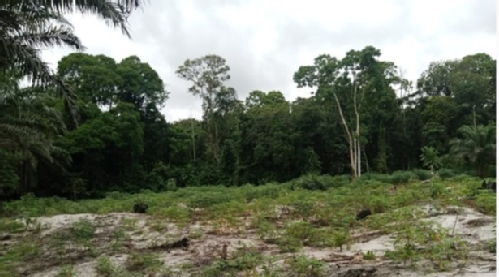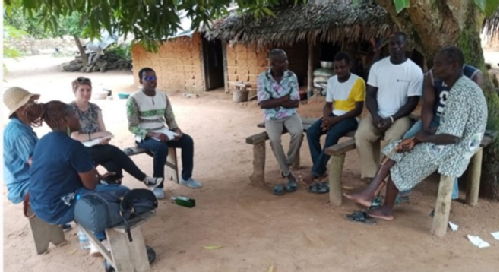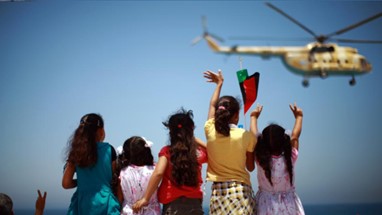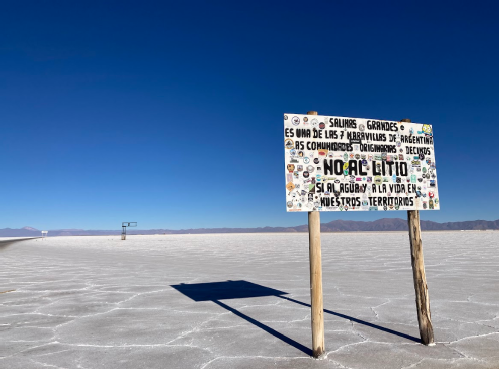Encounters, dialogues and solutions for natural resource management and sustainable development
“L'homme n'est pas le maître de la terre, mais la terre est le maître de l'homme”: Encounters, dialogues and solutions for natural resource management and sustainable development in Côte d’Ivoire.

A view of the Voluntary Natural Reserve(May 2023, Photo Credit, Adou Djané)
Written by:
Adou Djané, Briony Jones, Mouzayian Khalil-Babatunde, Sita Akoko Kondo, Dohouan Village Secretary, Dohouan Forest Guides, and Dohouan Women’s Association.
The current ambitious Sustainable Development Goals (SDGs) framework requires actors to work together to realize sustainable development for all. However, we continue to see the dominance of top-down development despite the fact that local communities are vital for successful and legitimate development interventions. In this blog we present one particular local community action which is part of a joint project on natural resource management in Côte d’Ivoire. Our project “L'homme n'est pas le maître de la terre, mais la terre est le maître de l'homme”: Encounters, dialogues and solutions for natural resource management and sustainable development in Côte d’Ivoire is funded by the University of Warwick as part of an International Partnership Fund and is a collaboration between the Centre Suisse de Recherche Scientifique en Côte d’Ivoire (CSRS) and the University of Warwick. It is also a collaboration with local communities working to manage their natural resources, and it is for this reason that the blog is co-authored by the project partners as well as the local communities interviewed in the framework of this project. What this blog describes is an example of an effective constellation of collaborations for activism to protect a primary rainforest on the border between Côte d’Ivoire and Ghana.
In May 2023 we gathered in the village of Dohouan, in the South-East of Côte d’Ivoire and close to the border with Ghana. It is here that the Tanoe-Ehy Forest is situated, one of the last areas of rainforest in the country, home to three of the most endangered primates in the region, and under threat from conversion to palm oil plantations. We spoke together about the successful block in the expansion of palm oil plantation, and the designation of the forest as a Voluntary Natural Reserve by the Government of Côte d’Ivoire. Two themes are clear in the conversations that we had: (1) for the importance of future generations being able to see, enjoy, and use the forest; and (2) the importance of collaborative action combining local, regional and national actors.

Meeting with the community representatives (May 2023, Photo Credit, Adou Djané)
“Tous, on est impliqué”
These words of the Village Secretary: “We are all responsible” sum up the successful action to block the palm oil plantation expansion into Tanoe-Ehy Forest.
In the 1980s and 1990s, structural adjustment policies, advised by international financial institutions, were implemented in Côte d’Ivoire. This included the privatisation of the previously state-owned Palm industries in 1997. The assets of the company were bought by three private enterprises, significantly reducing the land ownership of smallholders in palm oil producing areas.
The forest is a valuable resource not only for the palm oil companies but for the local communities. There is a daily pleasure in seeing the forest, knowing the names of plants and animals, and being able to use the resources of the forest. This includes plants for medicine, wood for construction of buildings, and the use of flora and fauna in important cultural ceremonies. Successfully saying ‘no’ to the palm oil plantation in the rainforest adjacent to Dohouan is an important example of local community activism in the context of contested management of natural resources.
“Que la fôret demeure fôret”
When asked about key priorities, a group of village representatives told us that first and foremost they wished “the forest to be a forest”.
Supported by a network of voluntary forest guides, the rainforest is protected, and its use managed. The forest guides take great pleasure in the voluntary nature of their work, both directly preserving the forest through patrols and indirectly through educating the local population about the importance of sustainable management of the forest. There are now limits as to how much wood can be used from the forest, which plants can be taken out, a ban on hunting, and limitations placed on fishing.
Before the forest was designated a Voluntary Natural Reserve the local communities in the area participated in workshops to help to decide and define regulations for its management and protection. Representatives of the Government were present to advise on the different options available, but it was the local population who agreed together to request a Voluntary Natural Reserve.
“Je le fait pas pour moi, mais pour les générations de l’avenir”
The fight to save the forest is framed by local residents as a commitment to future generations, as this quote from the forest guides illustrates: “I am doing it not for me, but for future generations”. However, this was not simply a question of local community versus oil plantation company, it was a sustained effort over time through a network of collaborations and associations spanning different levels of governance.
The CSRS first began working with the local communities in the area in 2006, supporting activities around education to counter some depleting local practices while at the same time preserving the forest and its role in community life and sustenance. This initiative by CSRS “captured their attention” and it was then that “the idea of conservation was born”, according to the President of the Fishermen’s Association. It was the CSRS who accompanied local associations on visits to the relevant government ministries, provided information about the rights of the local communities, and supported the workshops which evolved and manifested in the request for classification of the forest as a voluntary natural reserve.
The outcome was a victory for the forest, it is protected and preserved. But it is still an ongoing journey of negotiation between different actors. The forest crosses the border with Ghana, and lack of adequate coordination, partly due to will and partly due to resources, undermine what should be a shared conservation effort. Lack of resources also undermine the work of the forest guides who do not have access to basic equipment such as walkie talkies or permanent patrol posts which would allow them to do their work in the remote setting of the forest.
“L’union fait la force”
These words, spoken by the President of the Fishermen’s Association: “together we’re stronger”, certainly seems a foundation for the past, present and planned activities of conserving the forest.
But this union has cracks, not least a feeling that since the official designation of the forest as a voluntary natural reserve, that the state has washed its hands of supporting in its management. Tensions between Ghanaian and Ivoirian Forest patrols as well as between Ghanaian and Ivoirian fishermen require time and resources to manage sensitively and fairly.
Resources
Recherches et Actions pour la Sauvegarde des Primates en Côte d’Ivoire CI (RASAPCI)
Où sont les colobes rouges de Miss Waldron?, Nature et Environnement
Authors’ Bio
This blog is written collaboratively by researchers in the Centre Suisse de Recherche Scientifique en Côte d’Ivoire (CSRS), the Department of Politics and International Studies University of Warwick, and representatives of the village of Dohouan in the South-East of Côte d’Ivoire by the border with Ghana. The blog is an output of our research project“L'homme n'est pas le maître de la terre, mais la terre est le maître de l'homme”: Encounters, dialogues and solutions for natural resource management and sustainable development in Côte d’Ivoire, funded by the University of Warwick as part of an International Partnership Fund (2022-2024).
 Mouzayian Khalil
Mouzayian Khalil

 Please wait - comments are loading
Please wait - comments are loading


 Loading…
Loading…